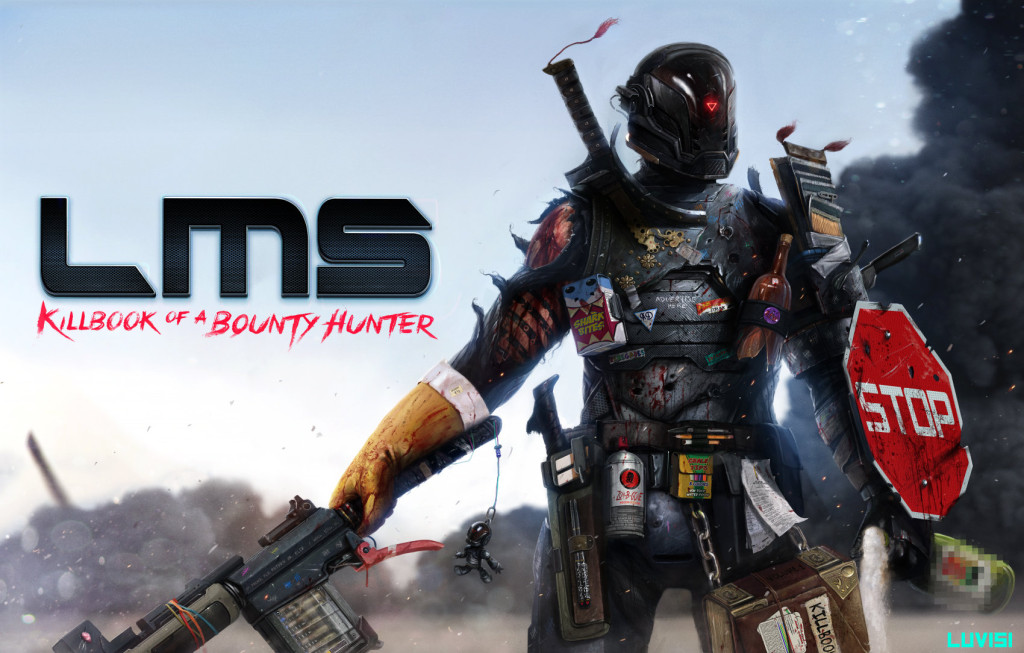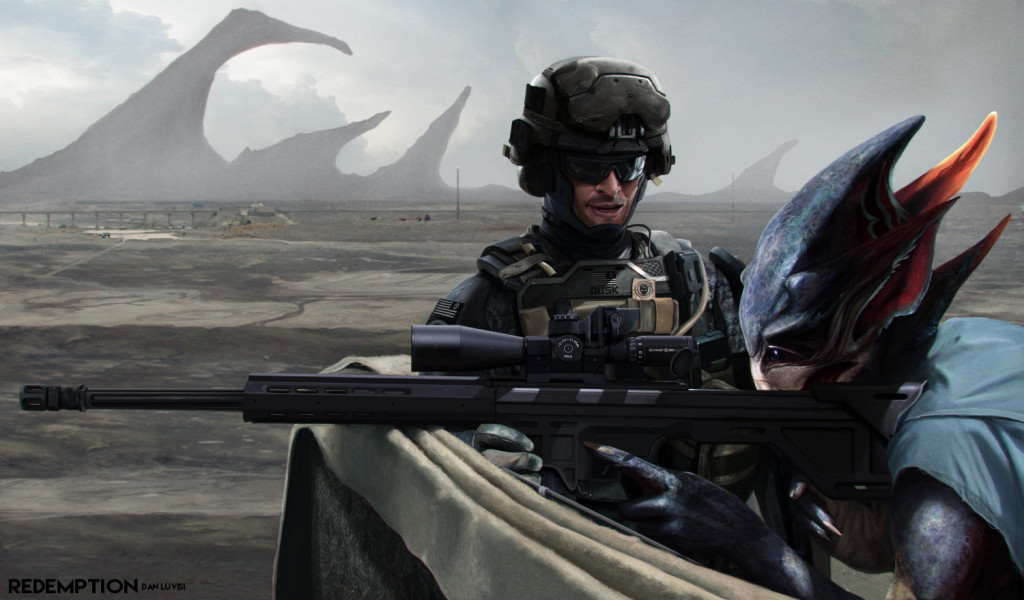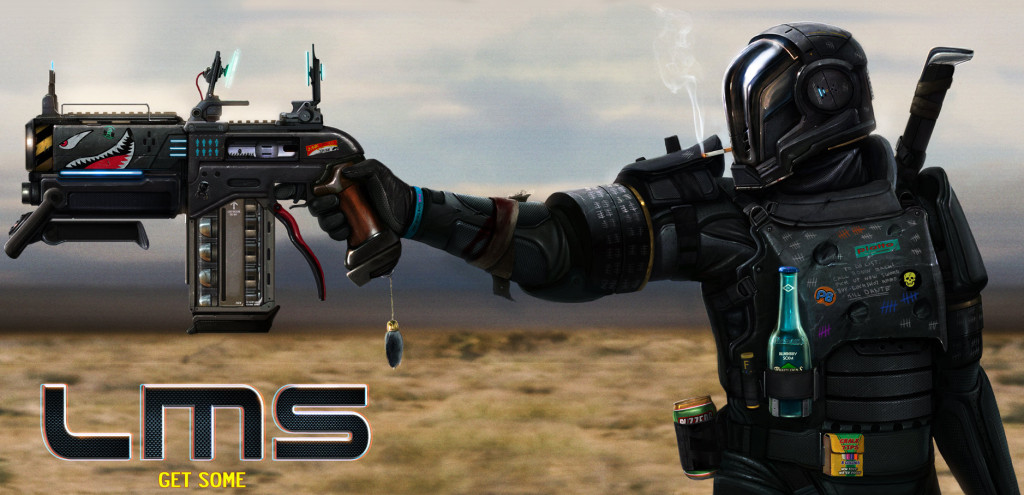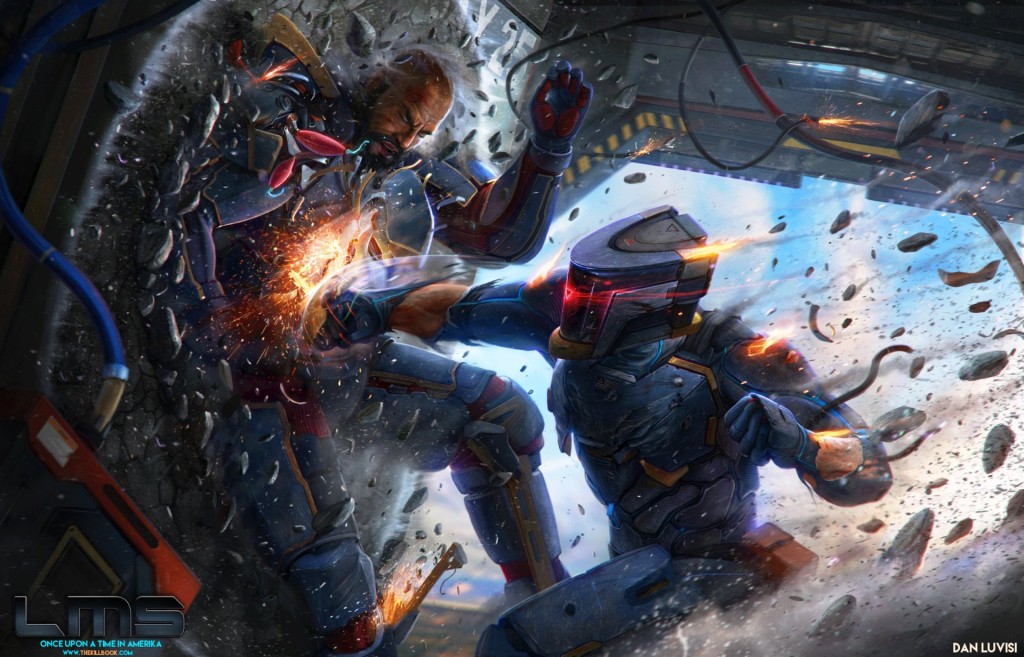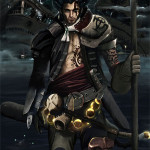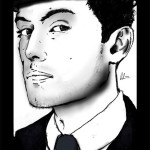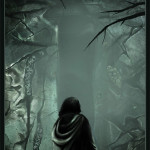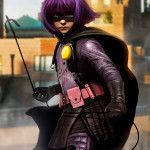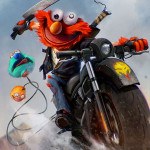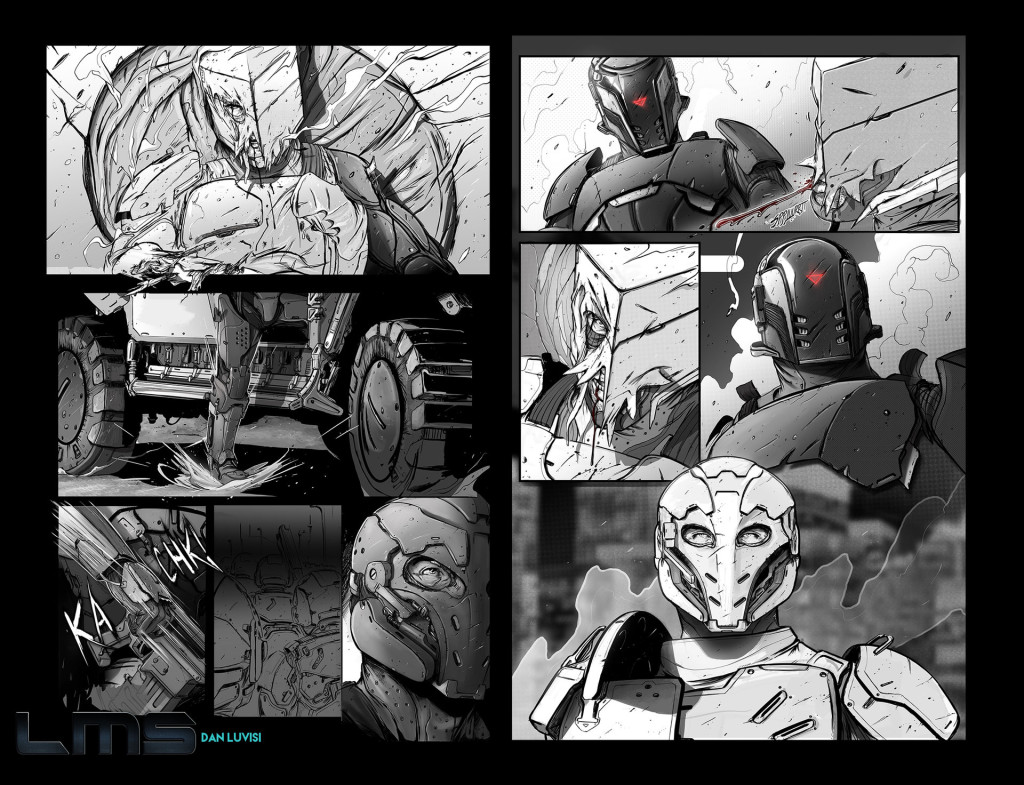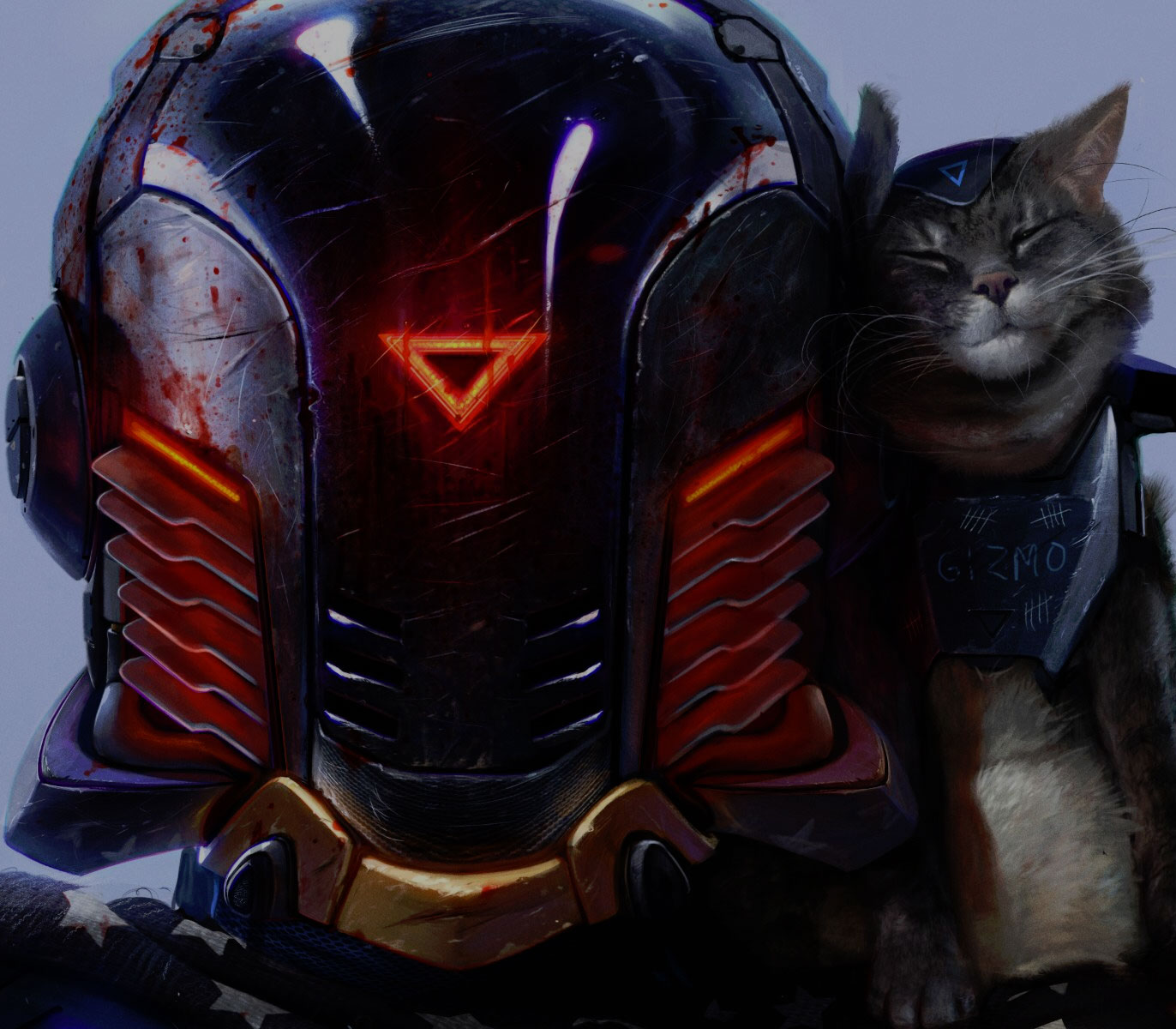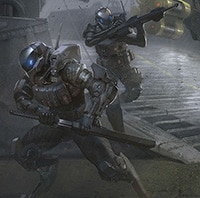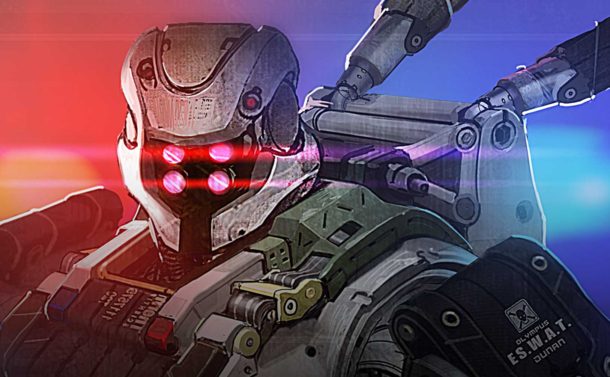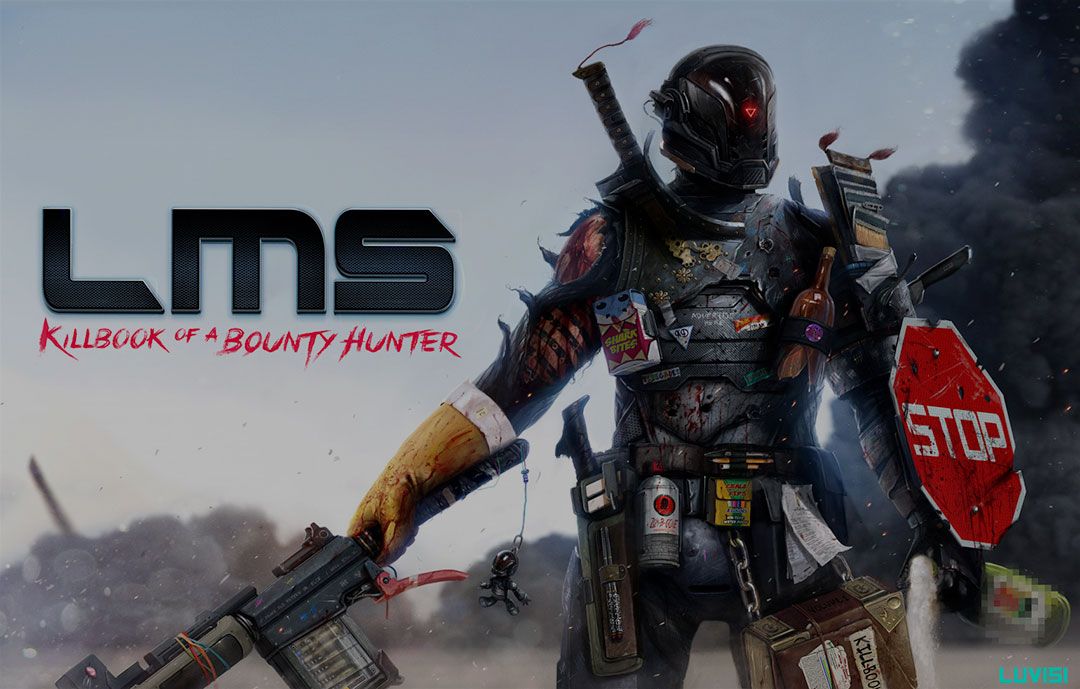
Interview with Dan LuVisi Part 1 of 2
DAN LUVISI IS A DIGITAL CONCEPT ARTIST WORKING IN THE FILM, VIDEO GAME AND COMIC BOOK INDUSTRY.
With 12 years of industry experience, LuVisi has created a name for himself and is known for having an extremely versatile artistic style. Besides concept illustrations, LuVisi has become an expert in character and costume design, matte painting, storyboards, posters & packaging design and more.
Website: www.danluvisiart.com
Check out his book: Last Man Standing: Killbook of a Bounty hunter. It’s LEGENDARY!
Follow him on social media: Instagram: DanLuvisiArt – Facebook: DanLuVisiArt
Current portfolio examples
In this first part of the interview, we asked him specific questions about what its like to be a concept artist in the entertainment industry, dispel a few common misconceptions that aspiring artists tend to have about the field, and discuss his educational background. Here what he had to say:
HOW OLD WERE YOU WHEN YOU DECIDED TO COMMIT TO BEING AN ARTIST? WHAT WERE YOUR MOTIVATIONS AND INSPIRATIONS?
I was about four when I first began drawing. It was all amateur hour at the LuVisi household, as the extent of my talent was placing a sun in the corner of the paper. I was inspired originally by my father, but it’d be unfair to say that my mother didn’t contribute as well. While my father was more of a traditional artists, using paints and pencils–my mother had come from an interior design background. It explains my where I get my OCD of details and my love for drawing/painting.
WHAT DO YOU LIKE MOST ABOUT YOUR JOB? WHAT DO YOU FEEL ARE THE BIGGEST CHALLENGES?
My biggest challenge is trying to find a label for what exactly I do. I don’t believe it has been done yet, and that isn’t to toot my, or the ones I work alongside with, horn. What originally happened with my property LMS spun an idea to create a facility where we could distribute original and creator-owned IP. We’re getting there, and it’s been one of hell of a difficult journey, but if it all works out, I’ll enjoy every day of it forthcoming.
ARE THERE ANY MISCONCEPTIONS YOU THINK STUDENTS TEND TO HAVE ABOUT CONCEPT ART AND ILLUSTRATION, THE JOB AND/ OR THE CAREER THAT YOU WISH TO SET STRAIGHT?
I believe a lot of artists cling to what is popular. They see artists such as Maciej Kuciara or Aaron Beck, and instead of going through the trials and tribulations of becoming such an artist, they’d rather just BE that artist. In return, I’ve seen a lot of artist lose sight of what they originally intended to pursue. Be your own artist, and find inspiration through others. Channel that, and make it your own.
CAN YOU SHARE A PERSONAL STORY, ABOUT A HARD LESSON THAT YOU LEARNED (ON THE BUSINESS OR ARTISTIC SIDE OF THINGS), THAT COULD HAVE BEEN AVOIDED, HAD YOU BEEN BETTER INFORMED?
Yeah, don’t try to make a book. I kid, but it was one of the most challenging and informative lessons I’ve learned since. A lot of struggles along the way and even more screw-ups. Still trying to figure out the smoothest way to this day, that doesn’t cost me an arm and a leg to push it forward.
LuVisi’s student work examples
HOW VALUABLE WILL GETTING AN EDUCATION FROM A UNIVERSITY OR COLLEGE BE FOR ASPIRING ARTISTS WHO WANT TO BREAK INTO THE ENTERTAINMENT INDUSTRY? SHOULD THEY ATTEND A REGULAR SCHOOL WITH A LIBERAL ARTS PROGRAM? A 4 YEAR ART SCHOOL? OR JOB SPECIFIC TRADE SCHOOL?
I didn’t go to art school (college), but at the time there weren’t as many as there are now. Now you have Gnomon with tons of courses, Schoolism being taught online, Anthony Jones’ classes and now I’ve seen Patreon setting up art schools. When I was younger, I couldn’t attend school purely for the fact that I didn’t have the money to do it. So I’m cut in the middle. While half of me definitely encourages going to school and absorbing as much as you can (not to mention the connections you will meet). But, I also just pushed hard and worked my ass off to get here. But it’d be a lie to say I don’t think about going in the near future. Can always learn.
WERE YOU DISCIPLINED AND/OR FOCUSED IN SCHOOL? WHAT WAS YOUR ROUTINE? HOW MUCH TIME DID YOU SPEND ON YOUR HOMEWORK VS. SOCIALIZING?
I was terrible in school. I have a severe case of A.D.D. and a bit of Asperger’s syndrome, so the books and I didn’t really click. Didn’t have the best of teachers either, due to the fact that they hated I drew all day in class. But, I did soar in classes I appreciated. History, English and Art (if the teacher was cool). But honestly, I drew more than studied.
BESIDES THE FUNDAMENTAL ART CLASSES (PERSPECTIVE, ANATOMY, COLOR THEORY, ETC.), WHAT CLASSES DO YOU THINK STUDENTS SHOULD TAKE IN COLLEGE? ARE THERE ANY CLASSES YOU TOOK WHICH SURPRISINGLY HELPED YOU MORE THAN YOU THOUGHT THEY WOULD?
I went to a junior college for a bit and took a few art classes. But as a whole, I’d say it’s important for students to take all of the above. Personally, I’ve learned a lot of those lessons through books and artists I look up to.
DID YOU HAVE ANY OUTSIDE HELP PUSHING YOU ALONG WITH YOUR TRAINING? FROM A MENTOR, PASSIONATE TEACHER? FAMILY? FELLOW STUDENT?
Stephan, my now business partner, turned me into the monster I am today. Without him, I’d be in a studio, anxiety at an all-time high, not pursuing what I’ve always wanted to.
DID YOU STUDY OR TAKE ADDITIONAL CLASSES/ LESSONS, OUTSIDE OF SCHOOL? IF SO, HOW FREQUENTLY?
Didn’t take any, other than some writing classes for screenplays from a “writer” who had “written” before for Hollywood. Take that with a grain of salt.
This concludes part 1 of our interview. All images used with permission by the artist. ©Dan LuVisi. In part two, we discuss with LuVisi his Dos and DONTs of portfolio building, How he branded and marketed himself in the beginning, and much more.

